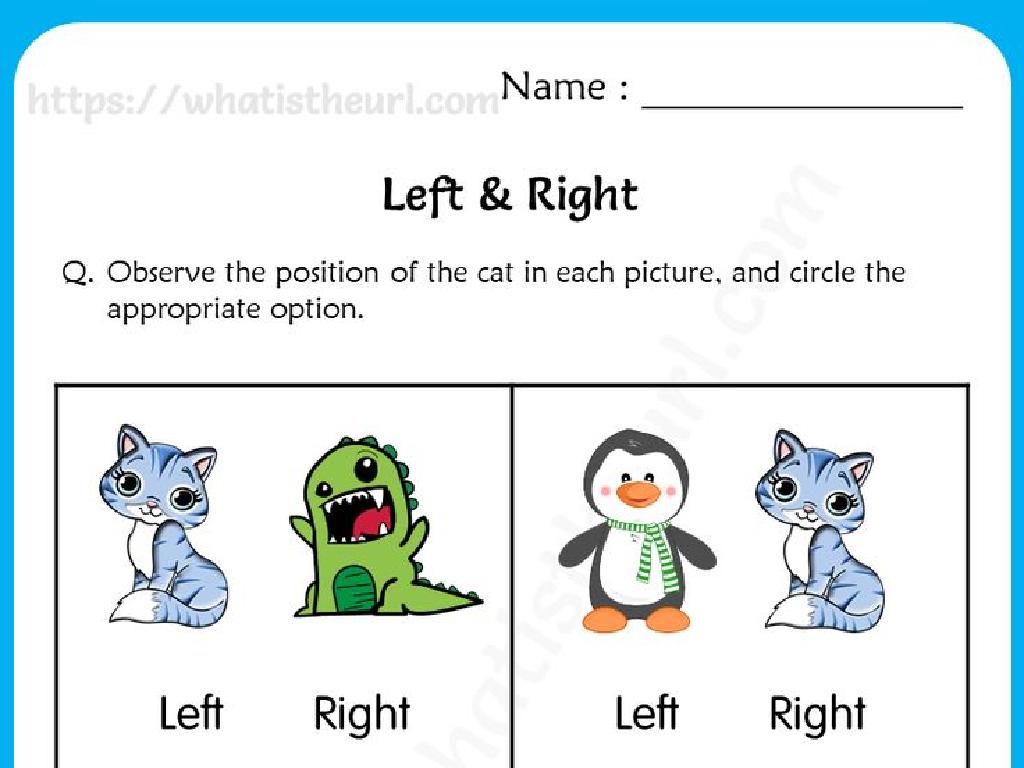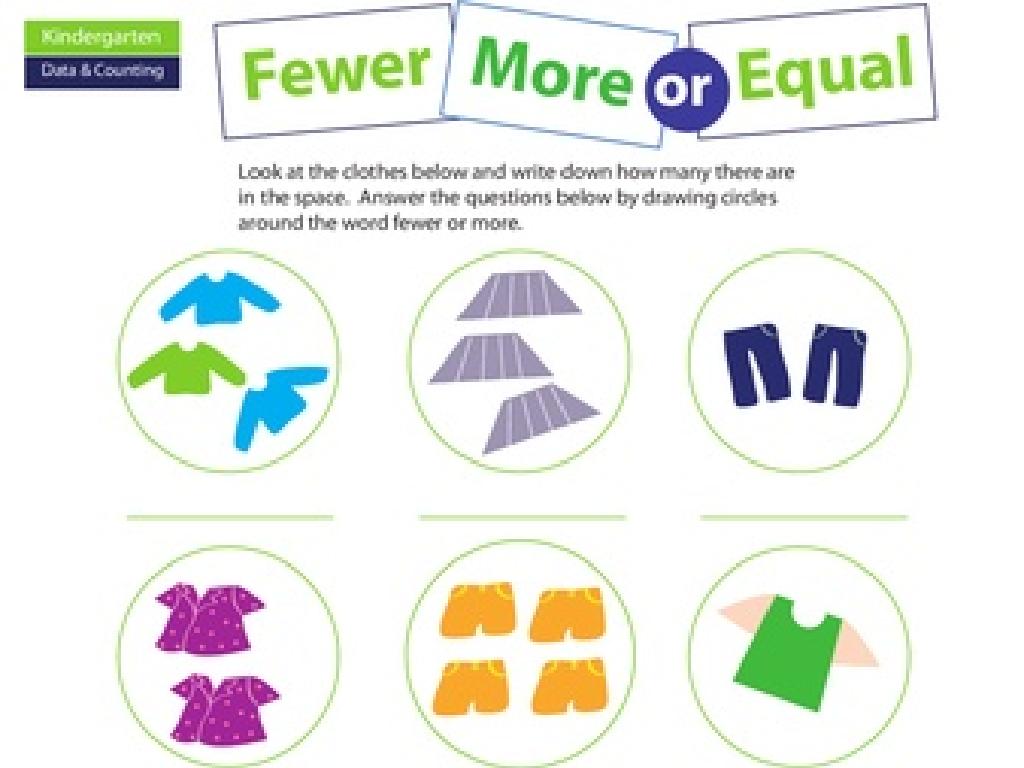Capitalization: Review
Subject: Language arts
Grade: Third grade
Topic: Capitalization
Please LOG IN to download the presentation. Access is available to registered users only.
View More Content
Welcome to Capitalization!
– Reviewing capital letter use
– We use capital letters to start sentences and for names.
– When to capitalize words
– Capitalize days, months, and holidays, but not seasons.
– Importance of capitalization
– It helps us know when a sentence starts and shows respect for names and places.
– Capitalization in reading & writing
– Proper capitalization makes our writing clear and easy to understand.
|
This slide introduces the concept of capitalization to the students, emphasizing its role in writing and reading. Begin by reviewing the basic rules of capitalization, such as starting sentences with a capital letter and capitalizing proper nouns. Discuss the importance of capitalization in indicating the beginning of new sentences and proper nouns, which helps in understanding the structure and meaning of sentences. Highlight how capitalization aids in showing respect for people and places. Engage the students with examples on the board and ask them to identify capital letters in a paragraph. This will prepare them for the upcoming activities where they will practice these skills.
Capitalization: Learning Big Letters
– What is capitalization?
– It means using big letters like A, B, C at the beginning of words.
– Capital letters start sentences
– Every sentence starts with a capital letter.
– Proper nouns need big letters
– Names of people and places are proper nouns and always start with a capital.
– Important words get capitalized
– Words like ‘I’ and titles of books or movies are important and need a capital.
|
This slide introduces the concept of capitalization to third-grade students. Capitalization is the practice of using uppercase letters at the beginning of sentences and for proper nouns, which are specific names of people, places, or things. It’s also used for important words such as the pronoun ‘I’ or titles. Emphasize the visual aspect of capital letters and how they signal something special in the text. Provide examples of proper nouns and important words, and explain that capitalization helps readers understand what they are reading better. Encourage students to practice by writing sentences and identifying proper nouns and important words that need capitalization.
Capitalization Rules: When to Use Capital Letters
– Start sentences with a capital
– Like in ‘The dog ran fast.’
– Capitalize names of people and places
– For example, ‘Lisa went to New York.’
– Days, months, and holidays get capitals
– Such as ‘Monday, January, Thanksgiving.’
– Practice capitalization in sentences
|
This slide is aimed at reviewing the basic rules of capitalization with third graders. Begin by explaining that every sentence starts with a capital letter. Then, discuss the importance of using capital letters for proper nouns, including people’s names and places. Also, highlight that days of the week, months of the year, and holidays always start with a capital letter. To reinforce learning, engage the students in an activity where they practice capitalizing the correct words in given sentences. This will help them grasp the concept through practical application.
Capitalization Rules Review
– Capitalize titles before names
– For example, ‘Doctor Smith’ not ‘doctor Smith’
– Always capitalize ‘I’
– Like in ‘I am excited to learn!’
– First word in quotes is capitalized
– He said, ‘Today is a great day.’
– Practice these rules in sentences
|
This slide is aimed at reinforcing the capitalization rules for third-grade students. Start by explaining the importance of capitalizing titles when they come before names as a sign of respect and formality. Then, remind students that the pronoun ‘I’ is always capitalized, no matter where it appears in a sentence. Next, illustrate that the first word in a direct quote is capitalized, which signifies the beginning of someone’s spoken words. Encourage students to write their own sentences following these rules and share them with the class. This will help solidify their understanding through practice. Provide additional examples if needed and correct any misconceptions immediately.
Let’s Practice Capitalization!
– Spot capital letters in sentences
– Correct capitalization errors
I’ll show sentences, and you’ll fix them.
– Write sentences with proper capitals
Remember to capitalize names, places, and start of sentences.
– Share your sentences with the class
|
This slide is designed for an interactive class activity on capitalization. Begin by displaying sentences and asking students to identify the capital letters. Next, present sentences with capitalization mistakes and have the students correct them. Then, encourage students to write their own sentences, ensuring they use capital letters correctly for the beginning of sentences, proper nouns, and titles. Finally, have a few volunteers share their sentences with the class to reinforce learning. This activity will help solidify their understanding of capitalization rules in a fun and engaging way.
Capitalization Game: Spot the Errors!
– Let’s play a capitalization game
– Work with a partner to find errors
– Find capitalization errors in sentences
– Correct the mistakes together
– Use a marker to fix capitalization errors
– Win a prize for most corrections!
|
This interactive game is designed to reinforce the rules of capitalization in a fun and engaging way. Students will pair up and be given sentences with capitalization errors. They will work together to identify and correct these mistakes. This activity not only helps to solidify their understanding of proper capitalization but also encourages teamwork. Keep track of the number of corrections each team makes, and award the team with the most correct answers a small prize. This will motivate the students and make the learning process enjoyable. Possible sentences for the game could include errors in capitalizing proper nouns, beginnings of sentences, days of the week, and months of the year.
Class Activity: Capital Letter Craft
– Create a craft of your first name’s capital letter
– Decorate your letter with colors and sparkles
– Think about why you chose your decorations
– Did the colors or stickers represent something special?
– Share your decorated letter with the class
|
This activity is designed to reinforce the concept of capitalization by personalizing it with the students’ first names. Each student will create a craft project using the first letter of their name, capitalizing it to emphasize its importance. Encourage creativity by allowing them to use colors, glitter, stickers, or any other decorative materials available. Ask them to think about why they chose their specific decorations do the colors represent something they like, or do the stickers tell a story? After the craft is completed, have each student present their letter to the class, explaining their design choices. This will help them associate the use of capital letters with something memorable and give them a chance to practice speaking in front of the group. Possible variations of the activity could include creating a capital letter from a favorite animal or a holiday theme to further engage their interest.
Capitalization Review & Homework
– Recap capitalization rules
– Write a story for homework
– Create your own tale, apply capitalization
– Use capitals correctly in your story
– Remember what to capitalize
– Sentences, names, places, days, months, holidays
|
This slide is meant to summarize the capitalization rules we’ve covered in class. Encourage the students to reflect on the importance of capitalization and how it helps make their writing clear and effective. For homework, they are tasked with writing a short story, providing them with an opportunity to apply what they’ve learned. Remind them to capitalize the first word of sentences, proper nouns like names and places, as well as days of the week, months, and holidays. This exercise will reinforce their understanding and give them practice in recognizing when to use capital letters. In the next class, we can review some of the stories to celebrate their efforts and correct any mistakes together.






